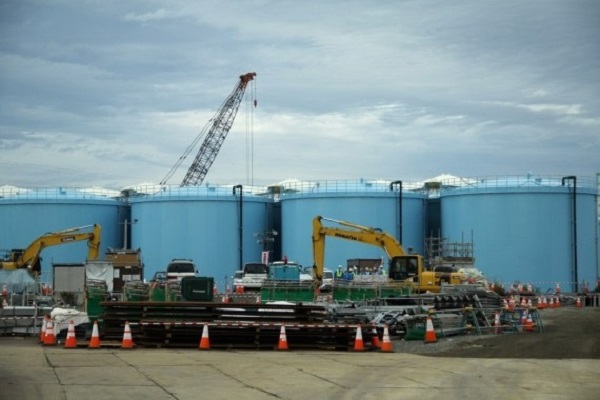Tokyo, (Asian independent) The International Atomic Energy Agency (IAEA) said that it will publish a report in April detailing the findings of its mission to review the Japanese government’s plan to release the contaminated radioactive water into the sea from the crippled Fukushima nuclear plant.
A task force of the IAEA conducted a five-day safety review in Japan, which the agency pledged, would be carried out on an objective and scientific basis, reports Xinhua news agency.
Neighbouring China and South Korea, as well as the fishery industry in Japan, have expressed strong opposition against the plan to dump the radioactive water into the sea from the Fukushima Daiichi nuclear power plant damaged by the 2011 earthquake and tsunami.
China has expressed serious concerns, with Foreign Ministry spokesperson Zhao Lijian saying that Beijing urged the Japanese side to take a responsible attitude and treat the issue of nuclear waste disposal with caution.
South Korea has also voiced its “grave concerns”, with Foreign Ministry spokesman Choi Young-sam saying “it will be difficult to accept if the Japanese side decides to release the contaminated water from the Fukushima nuclear power plant without sufficient consultations”.
The IAEA task force, established last year and consisting of experts from various countries including China and South Korea, went to Fukushima Prefecture in northeastern Japan earlier in the week to review the situation.
The IAEA team observed sampling of treated water in tanks by the plant operator Tokyo Electric Power Company Holdings Inc. (TEPCO), among other things, on Tuesday.
About 50 litres of the water will be analysed separately by the agency’s laboratories, according to the IAEA.
“This is a significant step forward in the task force’s work aimed at assessing their adherence to the IAEA safety standards which contribute to high levels of safety worldwide,” said Lydie Evrard, head of the IAEA’s Department of Nuclear Safety and Security, during a virtual press conference on Friday.
Water samples collected before, during and after the discharge will be analyzed at laboratories in Austria and Monaco to detect the levels of radioactivity in the water stored in tanks as well as in the ocean, said Gustavo Caruso, chair of the task force.
During the team’s stay in Japan, they also inspected a site where the facilities to discharge treated water will be built, and heard details of the plan from TEPCO and the Ministry of Economy, Trade and Industry.








